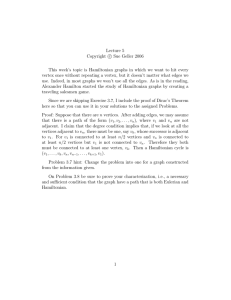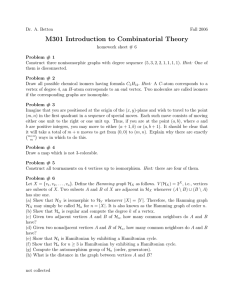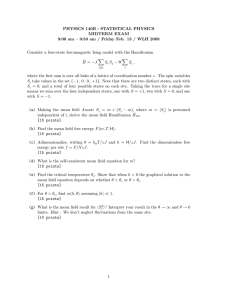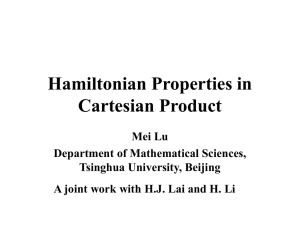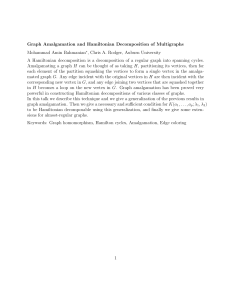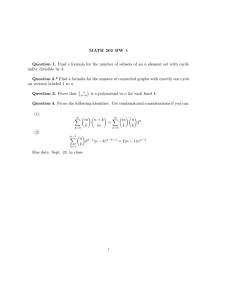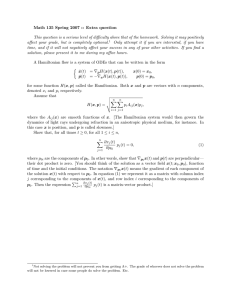HW 4: due Thursday, October 4 in class
advertisement
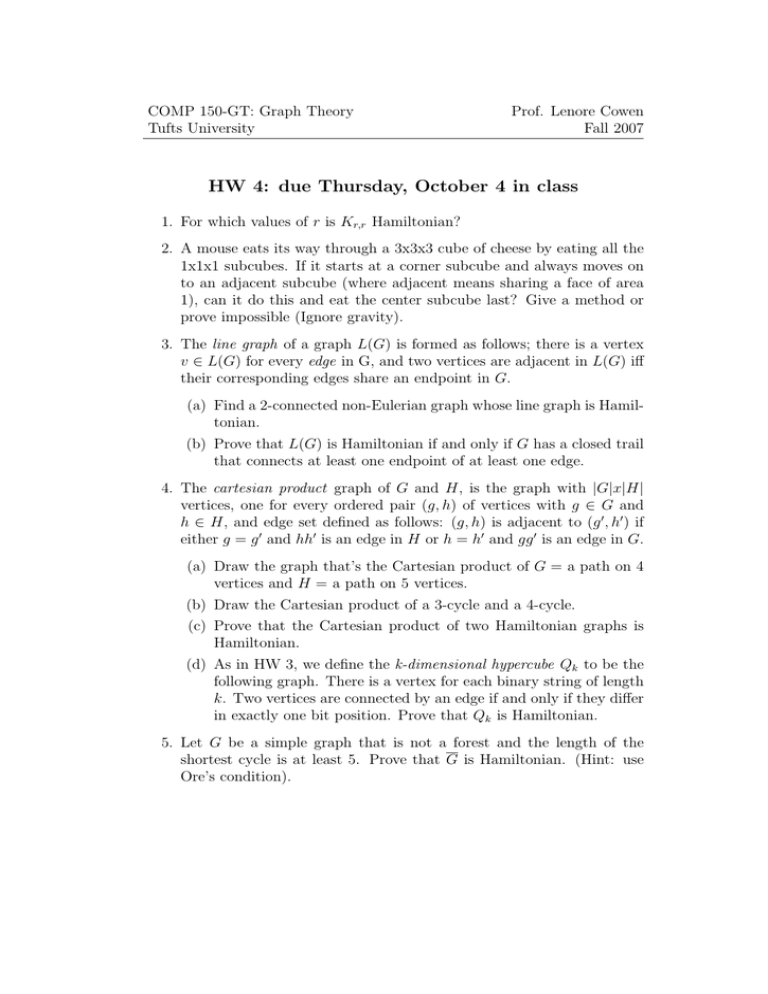
COMP 150-GT: Graph Theory Tufts University Prof. Lenore Cowen Fall 2007 HW 4: due Thursday, October 4 in class 1. For which values of r is Kr,r Hamiltonian? 2. A mouse eats its way through a 3x3x3 cube of cheese by eating all the 1x1x1 subcubes. If it starts at a corner subcube and always moves on to an adjacent subcube (where adjacent means sharing a face of area 1), can it do this and eat the center subcube last? Give a method or prove impossible (Ignore gravity). 3. The line graph of a graph L(G) is formed as follows; there is a vertex v ∈ L(G) for every edge in G, and two vertices are adjacent in L(G) iff their corresponding edges share an endpoint in G. (a) Find a 2-connected non-Eulerian graph whose line graph is Hamiltonian. (b) Prove that L(G) is Hamiltonian if and only if G has a closed trail that connects at least one endpoint of at least one edge. 4. The cartesian product graph of G and H, is the graph with |G|x|H| vertices, one for every ordered pair (g, h) of vertices with g ∈ G and h ∈ H, and edge set defined as follows: (g, h) is adjacent to (g 0 , h0 ) if either g = g 0 and hh0 is an edge in H or h = h0 and gg 0 is an edge in G. (a) Draw the graph that’s the Cartesian product of G = a path on 4 vertices and H = a path on 5 vertices. (b) Draw the Cartesian product of a 3-cycle and a 4-cycle. (c) Prove that the Cartesian product of two Hamiltonian graphs is Hamiltonian. (d) As in HW 3, we define the k-dimensional hypercube Qk to be the following graph. There is a vertex for each binary string of length k. Two vertices are connected by an edge if and only if they differ in exactly one bit position. Prove that Qk is Hamiltonian. 5. Let G be a simple graph that is not a forest and the length of the shortest cycle is at least 5. Prove that G is Hamiltonian. (Hint: use Ore’s condition).
